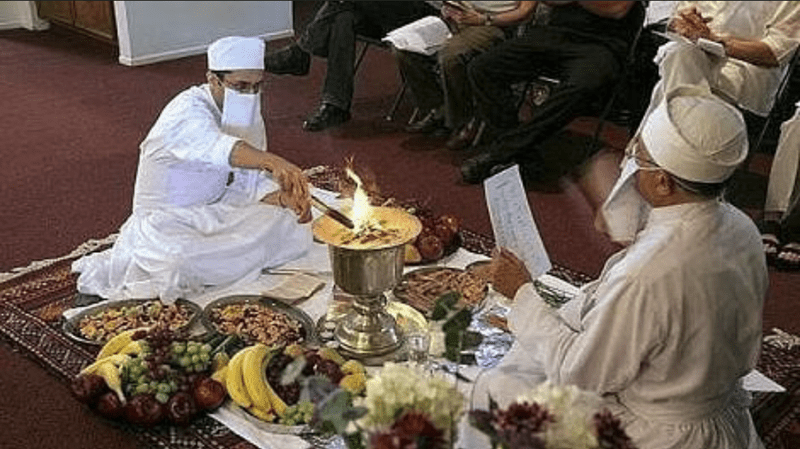Pateti signifies the final day of the Parsi Calendar year before Navroz, the Parsi New Year. “Pateti” originates from the Iranian term “Patet,” signifying repentance.
Patet Pashemani |
Similar to many Parsis, when Hanoz Mistry visits the Fire Temple today, his prayers go beyond the routine, incorporating personal supplications. Alongside his customary prayers, Mistry also recites the Patet Pashemani (Prayer for Repentance) during Pateti, which some individuals might also recite throughout the year. “However, on this particular day, I make it a point to recite it. This day marks the culmination of a 10-day period during which we pray for the departed souls and seek repentance for our deeds,” Mistry explained.
Pateti signifies final day of the Parsi Calendar
Pateti signifies the final day of the Parsi Calendar year before Navroz, the Parsi New Year. “Pateti” originates from the Iranian term “Patet,” signifying repentance. This concept aligns well as it symbolises a day to apologise for all the intentional and unintentional wrongdoings committed throughout the year. “You apologise to God and to nature. Some even recite the special Patet Pashemani (Prayer of Repentance), if they are capable. It’s a lengthy prayer with intricate words in the Parzon language, although it’s also available in Gujarati and English scripts,” shared Ervad Dr. Ramiyar Karanjia, a knowledgeable Parsi scholar.
While seeking forgiveness, devout Parsis like Mistry highlighted that they also pledge to accept whatever consequences arise due to their misdeeds with humility. “It’s not that the consequences won’t manifest. They inevitably will. However, when you engage in personal prayers, you embrace the consequences humbly and vow not to commit the same wrong again. You need to shoulder the responsibility for the repercussions of your actions while seeking forgiveness. We also commit to avoiding repetition of our mistakes,” Mistry elaborated.
Pateti not a celebratory occasion
Ervad Dr. Ramiyar Karanjia also mentioned that many people misconstrue Pateti as a celebratory occasion. “Numerous individuals offer Pateti Mubarak greetings, but it’s not a festive sentiment. The actual celebrations take place during Navroz, the Parsi New Year, primarily celebrated by the Shahenshai Parsis. This year corresponds to the 1393 Yezdezardi New Year according to the Shahenshahi Calendar,” clarified Karanjia.
Parsi New Year falls on Thursday and is predominantly celebrated by Shahenshahi Parsis, constituting around seventy percent of the community; the remainder comprises Kadimis and Faslis. Named after their Shahenshahi calendar, this branch of Parsis arrived in India over 1,300 years ago, unlike the Irani Zoroastrians who arrived a few centuries later. The Shahenshahi Calendar commenced with a new king’s ascension to the throne in Iran. Hence, the moniker “Shahenshahi Calendar.” The last Zoroastrian king was Yezdezard / Yezdegard Shehriar III. The calendar is also referred to by his name, as he ascended the throne on this day, which is why it is celebrated as the New Year. Kadimis, following different calendars, celebrate their New Year a month earlier. The one occurring in March is associated with Faslis and is celebrated universally.

